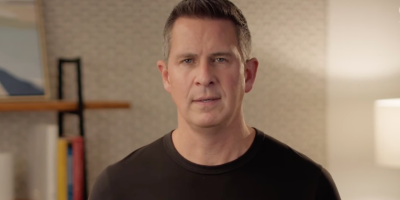The Senate voted 89-9 to pass a sweeping overhaul of the U.S. patent system today and sent it out to President Obama for his signature. This would be the most significant revision we’ve seen to the aging patent system in over 60 years. The main goal is to streamline the patent process and give the U.S. Patent and Trademark Office the money and manpower they need to get things done in a timely manner. Currently, it takes an average of 3 years to get a patent approved and the UPTO has a backlog of 1.2 million pending patents.
Obama had this to say,
“Today you passed reform that will speed up the outdated patent process, so that entrepreneurs can turn a new idea into a new business as quickly as possible. That’s the kind of action we need.”
The added manpower will translate into more and better trained examiners who will in turn, better judge what patents are getting passed in the first place. This will help avoid the long and costly legal battles we’ve been so much of as of late by preventing companies (like Apple) who use broad and vague patents to sue everyone. Much of the time we have one company suing another over patents they never invented in the first place. More man power = more scrutiny. Big corporations like IBM, Apple, Google, among others are all on board and fully endorse the bill.
Thanks, Ian!
[Via AP]











Anytime! Let’s just hope it makes it to the Presidents desk in quick fashion… Maybe we can finally shut down these 2nd grade patent battles that only hurt consumers. Anyone who believes the companies foot the bill are OUT OF THERE MINDS! The cost gets passed right on to us in the form of a higher price.
Unfortunately, I seriously doubt this will have any effect on current patent wars unless there is more to this bill than just added manpower.
None of this bill means a change in current patents nor will it slow the insane lawsuits. All it did was add manpower to the overloaded office which might mean we get slightly higher quality reviews of patents. But I fail to see how this will help against Apple patent trolling or that mega troll corp that was interviewed in NPR.
finally!
Many of the time?
i think that is stated correctly
I don’t, considering that now it says Much where it used to say Many. ;-)
“To things done” sorry Chris I have mad love for your articles had to point out that grammar error. Lmfao I’m just messing with u cause I know I’m the last person on earth that should correct someone. But thank God finally something getting done
LOL! I read it 10 more times and still couldn’t find the error. *sigh*
Found it and fixed xD
Err… “to speed up the […] patent process” will “help reduce and avoid […] legal battles”?
It rather sounds like it will be easier to get ammo for patent wars…
That’s the way I read this as well.. What about this will help reduce and avoid legal battles?
Updated post to clarify a little more. Most of the patents used to sue one another are extremely vague (slide to unlock) and should have never been passed in the first place. More manpower means more examiners who will better judge what get’s passed in the first place.
We are assuming more examiners means they will better judge the patents.
What they may need is better examiners…or just better management.
And how many of the patents used in lawsuits have your read in order to come to the generalized conclusion that “most of the patents used to sue one anohter are extremely vague.”
I’ve read dozens and dozens, and most are pretty clear.
The problem with the current patent system is they way they are worded, they are patenting actions and not HOW they are able to do this. What should be patented is the code that allows this to happen, not just the general idea. That way if another company can accomplish the same thing but in a different way it would be okay. If they leave it the way it is, “Slide To Unlock” could also mean sliding to the side, sliding up, etc., not just sliding down. The code to accomplish those actions would be completely different than sliding it down.
WIth more specific patents involving exactly how it is impelemented, it allows for multiple companies being able to do the same thing, just accomplishing it in different ways. How would that be bad?
That wouldn’t narrow software patents, that would just effectively abolish them. No one is going to bother spending the money to get a patent that is so narrow that it only covers your specific code.
Now, maybe abolishing software patents would be beneficial. Maybe it wouldn’t. But just be clear that your proposal wouldn’t be a narrowing of software patents, but would effectively get rid of them.
@tjeffer: Of course they would. That’s like saying no one would copyright music because it’s so narrow that Vanilla Ice could change an 1/8 of a measure and be free.
@Robb Nunya
Procuring a copyright doesn’t cost anything. You simply mark it with a circle-c, and you’ve got a copyright.
Obtaining a patent costs tens of thousands of dollars.
No one is going to spend tens of thousands of dollars on a legal instrument that doesn’t provide meaningful protection.
LoL!! 1.2 million pending patents? Oh my jay-zuss!!
Apple own 1 million of those patents.
all of them being bogus and overly vague of course
just in apple are putting in a patent for phone patent and all patents..so even if you try to make a new nail clipper with a patent they can ask for money or bring you to court cause they patented patents…ok i confused myself.
I bet one of em is a vague description of a patent reform, so that whoever couchAPPLEcough gets a hold of that patent can prevent patent system overhauls in order to troll more
At least they’re trying to give the appearance of wanting to fix things.
Ars doesn’t think this is quite as “sweeping” as our hyperbole-prone politicians do. Kudos to my senator, Maria Cantwell, for calling it what it is.
I will believe it when I see it. The problem with patents is mostly the amount of time that the patents are protected. 14 to 20 years is too long in the age of the internet. If we really want tech to advance, protect software and design patents for 1 or 2 years. That should significantly reduce the trolling and patent wars.
You forgot that a patent can be renewed twice. 20 years is just the first term.
That is incorrect. A patent lasts 20 years. It can’t be renewed for a second term.
A patent can be renewed but it is very difficult, it takes a special act of congress to renew a patent, unless you are a pharmeceutical company. Pharmaceutical companies can extened patents to compensate for the amount of time it takes the FDA to approve it.
You’re confusing two different matters. There are extensions of patent term via Congressional action for a specific patent and there is the patent term extension available to all patent holders (not just the drug companies, though they tend to get the most benefit since they’ve got tons of FDA delays to deal with) for administrative delay.
Out of the 8 million US patents granted to-date, only a few thousand have had their term extended by Congress.
Now, you can argue whether Congress should be playing favorites in such a way, but Congressional term extension is a minor practice that unlikely has much of an effect on the overall market.
Exactly. As I said in an earlier post they should also make them more specific. Rather than what is accomplished, patent the actual code to accomplish it. Set the protection to a few years (as they usually change things after 1 or 2 years anyway).
The 20 year patent protection was fine when innovation was what it was in the last century, but compare the rate of advancement from 1990-2000 vs. 2000-2010, it’s night and day.
“patent the actual code to accomplish it”
This. 100% This. Process should not be able to be patented. Code should. (Or should that be a copyright?) Reverse engineering is a time-honored tradition that should be encouraged as it can lead to more efficient ways of accomplishing things. Supporting innovation is key, and while you need to protect authors and inventors from theft of IP, the corporations are misusing the system as it stands today, and are hindering innovation. I mean, who gives a damn that the iphone is a black slab, mostly screen? So’s my old HP Jornada. And with Skype, yes I CAN make calls on it. It’s as ridiculous as trying to patent a wheel based on it being round and attached to an automobile.
Apple approves of this? You’d think they wouldn’t.
“we’ve been so much of as of late”
We’ve seen :)
I just read the AP article and I’m not seeing any mention anywhere in that article that says that it will stop patent trolling. In fact, I only see it speeding up. The only reduction of litigation I’m seeing mention of is in the initial patent process since they say they are moving from a “first to invent” to a “first to file” system. That actually sounds worse to me.
As engadet just reported Germany upheld the ban on Sammy Galaxy Tab
Most of the sites I’ve seen said this is a pretty toothless bill, unlike to change anything. I believe the patent goes to the first applicant and not the first inventor, so it won’t stop anybody from filing frvilous patents that they don’t have to actually create.
by signing this bill into law OBLAHMA might actually do ONE good thing before hes a civilian after next year..
Obama still is a civilian…
He may be the Commander in Chief but that doesn’t make him a member of the armed forces.
Dude, replace “OBLAHMA” with “The Senate” What exactly do you think it is the president does? Here’s a hint: 90% of his job is to sign whatever the Senate wants to pass. If he doesn’t want to sign it, he can veto it… and then they can go ahead and pass it anyway. Instead of jumping on the blame-the-figurehead-for-everything bandwagon, how about placing the blame on the people who actually refuse to agree long enough to pass any bills?
His job is to sign or veto a law based on his interpretation. Just because Bush signed everything for 7+ years with no Veto doesn’t mean that’s his job. That just means Bush was an idiot in that regard.
I may have under-emphasized the president’s authority to veto, but my main point still stands. Any bills we see passed, and any lack of action that happens in this country… all the direct result of Congress. The Senate is in charge of putting together and voting on bills, and even if the President vetos a bill, the Senate can pass it without his signature (though, at a higher percentage vote). People like David up there who think that the president is the cause of all of the country’s problems drive me crazy.
Bad patents can make it through the system faster than ever??!! Awesome!
This completely fails to address that the software world completely flies in the face of the old patent system. The dev process is a fraction of the cost and 10x the speed due to lack of physical components …. there’s no manufacture or distribution chain costs (once its ready you post to market or you useone of a hundred automated internet methods for delivery that the johnq public helps pay to support through thier ISP fees)…
The time to market in the land-o-software is a fraction of what it is for anything physical which is why people argue things move so much faster. 20 years is _too_long_ in today’s world when it comes to software. Much of that time covers the extended dev time. We need to go further and reword things: if it’s not a physical innovation it has a shortened time of protection. 5 Years should be plenty (maybe less)
More manpower == more rubber stamping of bad patents.
Now the floodgates will really open!
please, please, please let it be so.
doesn’t do anything for the patent trolls at apple.